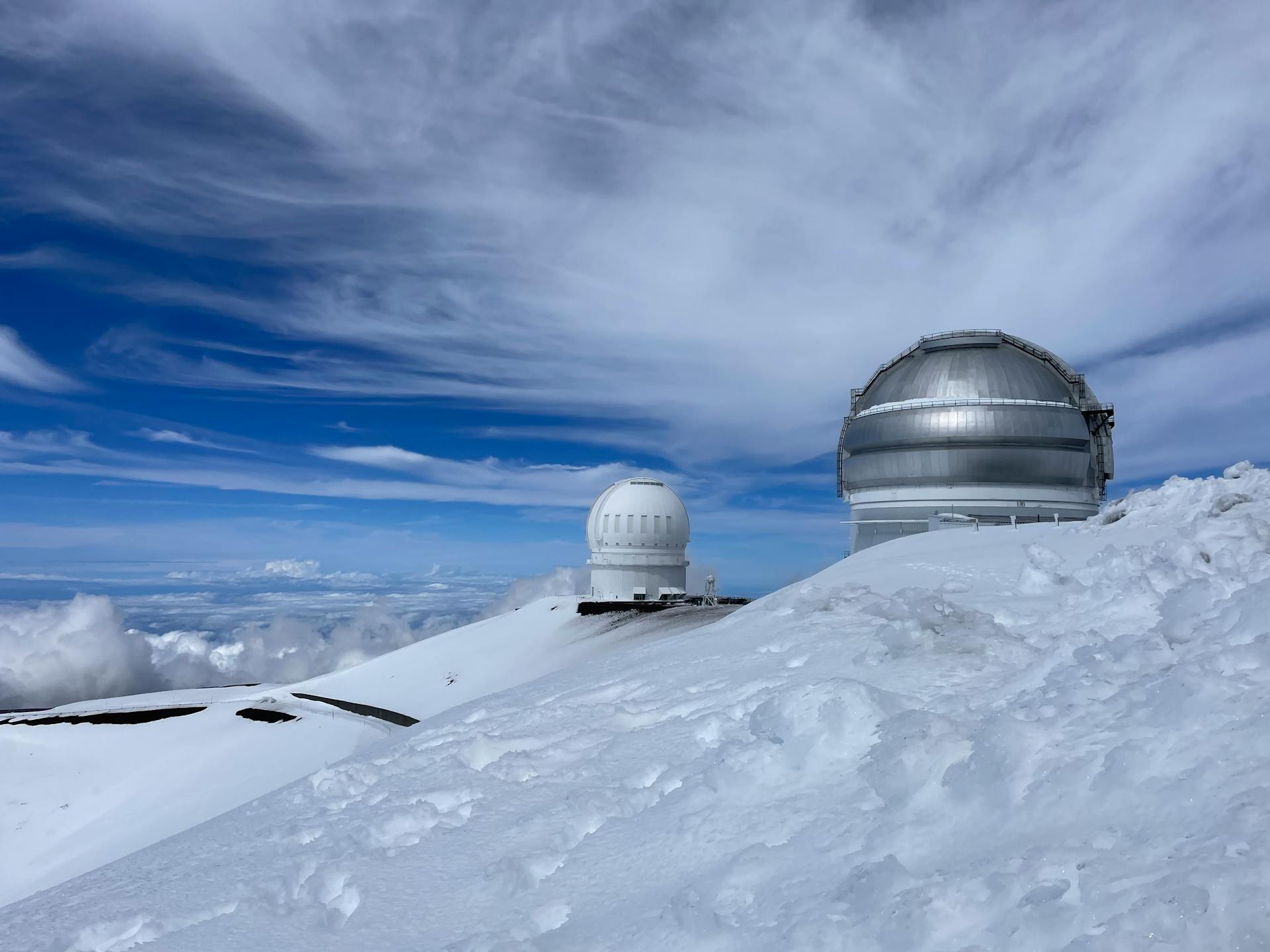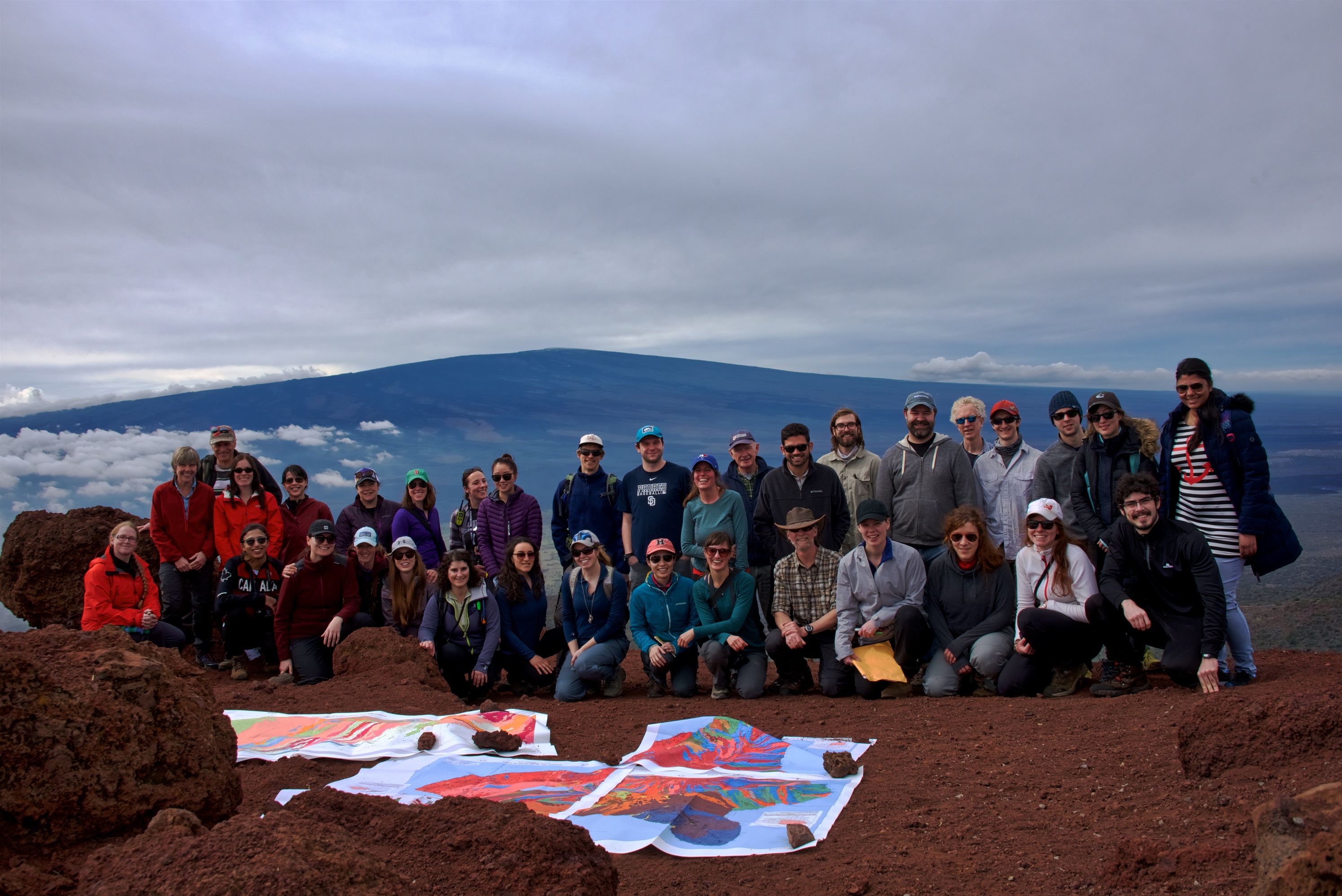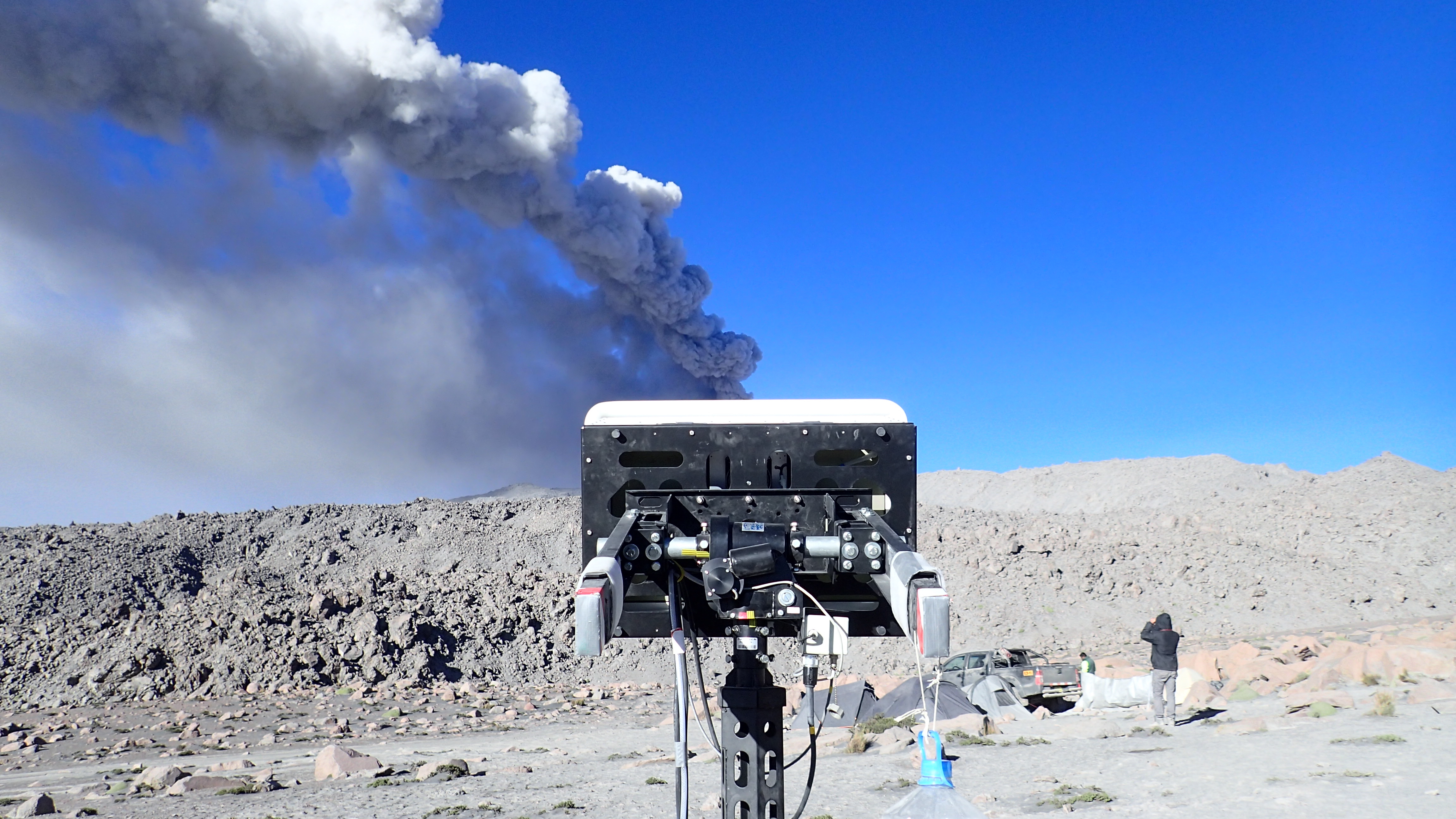Graduate Degree Programs
Explore over ten PhD, MSc and MASc programs in a diversity of research areas. In addition, course-based, non-thesis MEng program is also offered.
Degrees
For M.Sc. (with thesis) programs: these programs include either a 12-credit or 18-credit thesis. Students writing the 12-credit thesis must complete a minimum of 18 credits of additional coursework. Students writing the 18-credit thesis must complete a minimum of 12 credits of additional coursework. Students will work with their supervisor to determine whether the 12-credit or 18-credit thesis is the appropriate pathway for them. The coursework will be in graduate or advanced courses in geology and related fields selected in consultation with the student's supervisory committee.
- Under the 12-credit thesis option, up to 6 credits of coursework may be fulfilled by Directed Study courses, and up to 6 credits of coursework may be fulfilled by upper-level undergraduate courses.
- Under the 18-credit thesis option, up to 6 credits of coursework may be fulfilled by any combination of Directed Study and/or upper-level undergraduate courses.
The 12-credit thesis option is coded under EOSC 549A, and the 18-credit thesis option is coded under EOSC 549B.
The Atmospheric Science Program, administered by the Department of Earth, Ocean and Atmospheric Sciences (EOAS), is an interdisciplinary program, with faculty members coming from EOAS, Geography, Chemistry, Math, Land & Food Systems, and Applied Science. Research spans boundary layers, turbulence, urban meteorology, atmospheric chemistry and air pollution, climate and climate variability, weather and climate prediction with numerical and AI models, cloud physics, atmosphere-ocean interactions, geophysical fluid dynamics, polar atmospheres, wind and hydro energy, wildfire weather, atmospheric cycling of biogeochemical processes, organic aerosols from biomass burning, ice nucleation, and interactions between the atmosphere and land (especially vegetation and soil). See detailed info at https://atsc.eoas.ubc.ca/ .
UBC Calendar Description

Degrees offered: Ph.D, M.A.Sc., M.Eng., GCAGE
Geological Engineering is a dynamic, interdisciplinary program that bridges science and engineering to address real-world challenges. Hosted in the Department of Earth, Ocean and Atmospheric Sciences within the Faculty of Science, and in collaboration with the Faculty of Applied Science, our program offers a unique blend of geotechnical engineering, hydrogeology and applied geology. Graduates gain a highly sought-after skill set, equipping them to solve complex problems at the intersection of engineering and the earth’s environment — from natural hazard mitigation to sustainable resource development and environmental protection.
Our faculty members are international leaders in a wide range of research areas:
- Landslides & Natural Hazards – Geohazard assessments, debris flows, runout analysis, behaviour and mechanisms.
- Groundwater & Environmental Geochemistry – Groundwater hydrology, contamination remediation, reactive transport modelling.
- Geomechanics and rock engineering – Design of deep underground excavations, open pit and rock slope stability, mine geohazards.
Additional expertise and research areas include geotechnical engineering, environmental geology, economic geology and applied geophysics. Students are encouraged to connect with faculty members for research opportunities.
Note: Our PhD in Geological Engineering is available in both full-time and part-time formats, with the latter designed for professionals balancing work and research. For those pursuing a master’s degree, we offer two distinct options: the M.A.Sc. in Geological Engineering, a research-intensive program providing hands-on experience, and the M.Eng. in Geological Engineering, a course-based professional development degree designed for industry-focused careers. Additionally, our Graduate Certificate in Applied Geological Engineering (GCAGE) provides a flexible, modular option that allows students to build expertise and potentially ladder into a full master’s program. Additional information on graduate degrees and certificates in Geological Engineering can be found here.
UBC Calendar Description

Geology is the scientific study of the Earth, its materials, structure, processes, and history. It examines rocks, minerals, and fossils to understand the planet’s formation and evolution over time. Geologists investigate natural phenomena such as volcanoes or erosion, explore the dynamic forces that have shaped and continue to shape our world, helping to predict future changes and find valuable resources.
Faculty members in the Geological Sciences program have research interests in the following general areas:
- sedimentology, stratigraphy, basin analysis, Earth-surface processes, and geomorphology
- volcanology and petrology of igneous and metamorphic rocks
- structural geology of complex terranes and mineral deposits
- deposits of critical and base metals, coal and gas, mineral exploration methods, economic geology
- mineralogy, geochemistry and geochronology of many different environments
- geological remote sensing, imaging spectroscopy, and geographic information systems
- geoscience education
Students are encouraged to consult individual faculty members for information about current research areas.
UBC Calendar Description

Degrees offered: Ph.D., M.Sc., M.A.Sc.
Geophysics is an interdisciplinary physical science concerned with the nature of the Earth and other planets. It applies the knowledge and techniques of physics, mathematics and chemistry to understand the structure, dynamic processes and evolution of terrestrial and extraterrestrial environments.
Faculty members in the Geophysics program have research interests in the following general areas:
- ice sheets, mountain glaciers, glacier dynamics, sea-level rise
- climate change, climate reconstruction, volcanic processes
- surface processes, planetary evolution, planetary interior structure
- planetary magnetic fields, planetary missions
- earthquakes, subduction zones, Earth structure
- data science, machine learning, interactive computing
- inverse theory, electromagnetic methods
- physical modelling, applied mathematics
Much of our research involves field work set in the backdrop of British Columbia, western Canada and beyond. Students are encouraged to consult individual faculty members for information about current research areas.
UBC Calendar Description

Oceanographers investigate both fundamental and applied problems relating to the physics, mathematics, biology, chemistry, and geology of the sea, often working across traditional academic disciplines. Research carried out both independently and in collaboration with federal government laboratories occurs in many different oceanographic regimes, including coastal BC fjords, the inland sea of the Strait of Georgia, open ocean regions of the Subarctic Pacific, and many other locations, including the Arctic and Antarctic Oceans. The types of problems that can be studied include fundamental questions about the flow of stratified fluids at scales ranging from tens of meters to thousands of kilometers, applied research in estuaries, coastal, and deep-ocean processes, general ocean circulation and climate change issues, marine chemistry, geochemistry, and biogeochemistry, natural product chemistry, marine viruses, fisheries oceanography, plankton ecology and physiology, and primary production of the sea. The Department is well equipped to carry out research in the field (using either its own boat or larger vessels in the oceanographic fleet), at the laboratory bench, and in the numerical heart of a computer. Most problems involve aspects of all three.
Students in Oceanography may select courses, depending on their interest, from the following areas of specialization:
- biological oceanography
- marine chemistry and geochemistry
- physical oceanography and atmospheric sciences
Students are encouraged to broaden their knowledge by taking courses outside their area of specialization. Courses related to Oceanography are also offered in the Departments of Botany, Chemistry, Civil Engineering, Geography, Physics and Astronomy, and Zoology.
UBC Calendar Description
Questions?
Check out the UBC Calendar for additional information:
